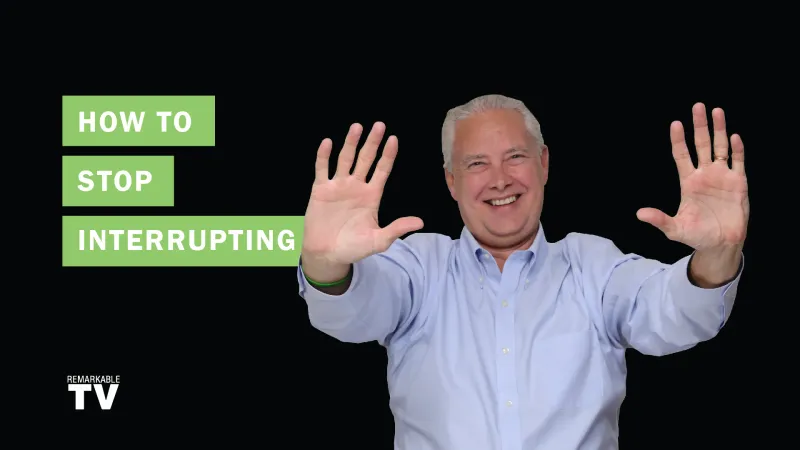Ever walked into a room and felt an inexplicable tension in the air? You might have been encountering someone giving off a bad vibe. Whether it’s through body language, communication, or energy, these unintentional signals can affect how others perceive you. Recognizing these signs is the first step to changing them. Here, we explore 14 telling signs that could indicate you’re giving off a bad vibe, along with actionable steps to transform that energy into something positive.
1. Constantly Crossing Arms

Crossing your arms frequently may signal defensiveness or resistance. Consider the environment; in a lively conversation, this posture could be misinterpreted as withdrawal. Instead, try to relax your shoulders and open up your stance.
Uncrossed arms invite more approachable dialogue. It’s a simple shift that can radically alter others’ perceptions of you. Maintaining open body language helps convey receptivity and warmth.
Adopting this change can transform interactions, allowing for more genuine connections and reducing any underlying tension.
2. Avoiding Eye Contact

Avoiding eye contact can give off an impression of dishonesty or disinterest. Eye contact is a fundamental part of communication that fosters trust and connection.
When you consistently avoid it, others may feel you’re hiding something or not fully present in the moment. Practice making gentle eye contact, balancing it so it feels natural rather than forced.
This small adjustment can significantly enhance interpersonal interactions, making you appear more engaged and credible.
3. Monotone Voice

Speaking in a monotone voice can dull the energy of a conversation, leading others to perceive you as uninterested or lacking in enthusiasm. Varying your tone can make interactions more dynamic and engaging.
Try emphasizing key points and allowing your voice to rise and fall naturally.
This not only conveys your interest but also keeps listeners hooked. Enhancing vocal expression can breathe life into your words, inviting more lively and productive exchanges.
4. Frequent Sighing

Frequent sighing can unintentionally communicate frustration or dissatisfaction. It may signal to others that you’re overwhelmed or disengaged.
Being mindful of this habit can help you project a more composed demeanor. When you feel the urge to sigh, consider taking a deep breath and reassessing your emotions.
This approach helps maintain a calmer, more approachable presence, encouraging others to engage more positively with you.
5. Restless Movements

Restless movements like fidgeting can suggest nervousness or impatience. This behavior often distracts others, pulling focus away from meaningful interactions.
To convey calmness, try grounding yourself through deliberate, slow gestures. This can help create a more serene presence.
Mindful stillness invites others to focus on the conversation, enhancing overall communication and connection.
6. Negative Self-Talk

Negative self-talk can seep into your interactions, affecting how others perceive you. Constantly criticizing yourself can project an aura of negativity, making it difficult for others to connect with you positively.
Replacing negative thoughts with affirmations can alter this dynamic. Celebrate small victories and acknowledge your strengths.
By fostering a more positive inner dialogue, you naturally emit a more inviting and uplifting energy to those around you.
7. Closed-Off Posture

A closed-off posture, such as hunching your shoulders, can make others feel unwelcome. This stance often signifies insecurity or withdrawal, unintentionally pushing people away.
Opening up your posture by straightening your back and lifting your head can convey confidence and openness.
This subtle change invites others in, fostering an environment of warmth and inclusivity.
8. Interrupting Others

Interrupting others during conversations can make you seem dismissive and self-centered. This habit often leaves others feeling undervalued and frustrated.
Practicing active listening and waiting for your turn to speak demonstrates respect and attentiveness.
This approach can transform interactions, showing that you value others’ contributions, and leading to more respectful and engaging dialogues.
9. Inconsistent Behavior

Inconsistent behavior can confuse those around you, leading to mistrust or discomfort. When your actions vary dramatically, it can signal unreliability or insincerity.
Striving for consistency in your interactions fosters trust and predictability.
Being mindful of how you present yourself across different settings helps maintain a stable and reliable presence, encouraging stronger connections.
10. Excessive Complaining

Excessive complaining can drain positivity from interactions, creating a negative atmosphere. This habit often pushes people away, as it signals a focus on problems rather than solutions.
Shifting your perspective to emphasize gratitude and positivity can change the energy you project.
By focusing on what’s going well, you promote a more uplifting and engaging environment, attracting more positive interactions.
11. Overly Sarcastic Remarks

Overly sarcastic remarks can alienate others, making them feel belittled or uncomfortable. While sarcasm can be humorous, too much can appear dismissive or harsh.
Balancing humor with sincerity helps maintain warmth and respect in conversations.
By being mindful of your tone and the frequency of sarcastic comments, you foster a more welcoming and respectful atmosphere.
12. Neglecting Personal Appearance

Neglecting personal appearance can unintentionally signal disinterest or lack of self-respect. Others may interpret this as a lack of professionalism or care.
Taking time to present yourself neatly can enhance your confidence and the way others perceive you.
A polished appearance often communicates respect for oneself and those you interact with, fostering a more positive impression.
13. Lack of Enthusiasm

Lack of enthusiasm can be contagious, leading to disengagement in group settings. Enthusiasm is key in motivating and inspiring others, so its absence can create a dull atmosphere.
Injecting energy into your interactions by showing genuine interest and excitement breathes life into the environment.
This vibrancy encourages others to engage with you more positively.
14. Ignoring Social Cues

Ignoring social cues can make interactions awkward and uncomfortable. Being attuned to these cues shows empathy and respect for others’ boundaries.
Observing body language and verbal signals helps gauge the flow of conversation.
By becoming more aware of social dynamics, you create smoother and more respectful interactions, fostering stronger connections.

Mother of three and a primary school teacher. I’ve always loved being around children and helping them, so I chose my path as a teacher. It is sometimes hectic with three children, but I am 100 percent into it and wouldn’t change it for anything in the world.

